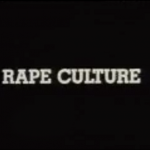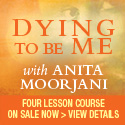Rape is always everywhere: in America, in India, in Somalia, in Saudi Arabia, in Israel. We all know the newest news stories: a small town divided, a girl dead in Dehli– the conversation is back on the table. And in all these conversations, there seems to be something missing. Yes, we need to protect our daughters, but more importantly– how do we stop our sons?
At least a few mornings a week for the past few years, I write at the same coffee shop. The crowd in the morning is filled with retired men around age seventy. Sometimes their wives join them, but most of the time, they congregate at an over-sized table and gossip. The leader of the pack is a man in his early seventies, white hair, no wrinkles, works out religiously. He likes to gab with every woman that walks in. Well, every pretty woman that walks in. Then, once she leaves, the men begin to talk, like frat boys. They objectify every woman and speak of her looks in great detail in loud booming voices. They are like a pack of teenage boys trying to navigate the first taste of potent testosterone rushing through their bodies. However, these men aren’t teenage boys. They’ve had a good fifty years to figure out how to keep their hormones in check–especially in public. I cringe at them. While the leader talks to every pretty girl who walks in, I’ve had maybe six conversations with him. Why? Because I’m not fuckable; therefore, I’m not worthy of conversation. I don’t say this because it hurts my feelings. I’m saying it because I find the undercurrent of these men’s conversations dangerous.
Over the years, women’s rights advocates have cultivated a mantra: Rape isn’t about sex; It’s about power.
This mantra is not only absurd, it is downright dangerous. I’m not the first to argue this. Camille Paglia wrote a controversial essay on the topic called “On Rape that had feminists up in arms. To pretend that rape has nothing to do with sex ignores the piece of male sexuality that makes men forget that women are not objects. It ignores the conversations that spark the downward spiral into inappropriate action. It ignores the group-think associated with these conversations and ignores the possibility of a next step.
Ten years ago, I sat in the bleachers at a softball game. An man in his early fifties sat next to me. He and his buddies kept commenting about one of the law clerks on the field… how hot she was…their comments got more and more intense. They were fixated on every part of her.
I was sitting right there.
They didn’t even care.
Then, the man told his thirteen year-old son that when the two teams wish each other “good game” he should pull down the girl’s pants, so they could see her underwear. The boy started to get up.
“Don’t.” They said it. But they laughed.
The lesson was a clear. That boys actions wouldn’t have been about power alone. They would have been about sex and the needs of a crowd of men to view the nakedness of a young law student for their own pleasure. The idea that it might shame her meant nothing. It was disgusting. And I was too scared to speak up because my husband was new at his job.
But that is where it begins. With the comments about women and the slippery slope on which they are shared. To say that the slippery slop is simply about power is to completely misunderstand male sexuality.
Of course, as the mother of a daughter, I never want her to be that girl on the softball field. I never want your daughter to be that girl on the softball field.
So we teach our daughters about rape.
We warn them.
But as the mother of a son, I never want him to be that boy pulling that girl’s pants because they guys thought it was funny. I never want him to be the guy that has sex with a girl who is so drunk that she can’t remember the next morning. I never want him to use sex to overpower.
So, where do we start? We start by acknowledging these coffee house, frat house, locker room, softball field conversations aren’t just boys being boys. They are a lesson in the intertwining of sex and power…a lesson in how easily woman can loose their humanity in a crowd of men.
 Over-sharing Zavtik Mama, Editor, Writer, Yiddish Lover, Reform Jew, Avid Public Breastfeeder, and now, the Not-So-Silent B in LGBT, — Shoshana Rachel puts the Shosh in Meshuga one word at a time. Read her ever-evolving voice on her blog, Shoshuga or follow her on . For her bigger fight on female equality, see her vlog on the great Jewish Women’s Organization Women of the Wall. This poem originally published on her blog.
Over-sharing Zavtik Mama, Editor, Writer, Yiddish Lover, Reform Jew, Avid Public Breastfeeder, and now, the Not-So-Silent B in LGBT, — Shoshana Rachel puts the Shosh in Meshuga one word at a time. Read her ever-evolving voice on her blog, Shoshuga or follow her on . For her bigger fight on female equality, see her vlog on the great Jewish Women’s Organization Women of the Wall. This poem originally published on her blog.


 Strong & Fast
Strong & Fast










Yes, I agree with all of this. Sometimes I feel so powerless to stop this kind of behavior, especially when the men in question are family members. I wish I knew what to say, or had the courage to say it.
Yes, I absolutely agree with everything you said here. Rape is about power–AND about men who think their “right” to have sex with any woman they want is more important than the woman’s right to choose.
I honestly think the “no means no” mantra has hurt us because it’s too easy for a woman to be cowed into not saying anything. We need to teach our sons: “Only ‘Yes’ means Yes.”
I think you make an excellent point about “no means no” hurting us because it leaves out the all the unable to say no: drunk, married, fear….
You make some excellent points here. As the mother of only one son, it’s hard to know when is the right time to start talking about this sort of thing. We’ve had the “our bodies our own and no one has the right to touch it” talk and I’ve also added in that he does not have the right to touch anyone else’s in any way unless they say it’s OK. I guess that’s the early part of it, but I wonder if I’ll know when the objectifying begins around him – his peers, older siblings – etc. Very good read.
More importantly, you can start the conversation about respecting women and girls. I’m surprised at how early my son has caught onto the concept of hottness…
Wow, that’s just a great piece. Really well said.
Thank you. I’m glad it’s making people think.